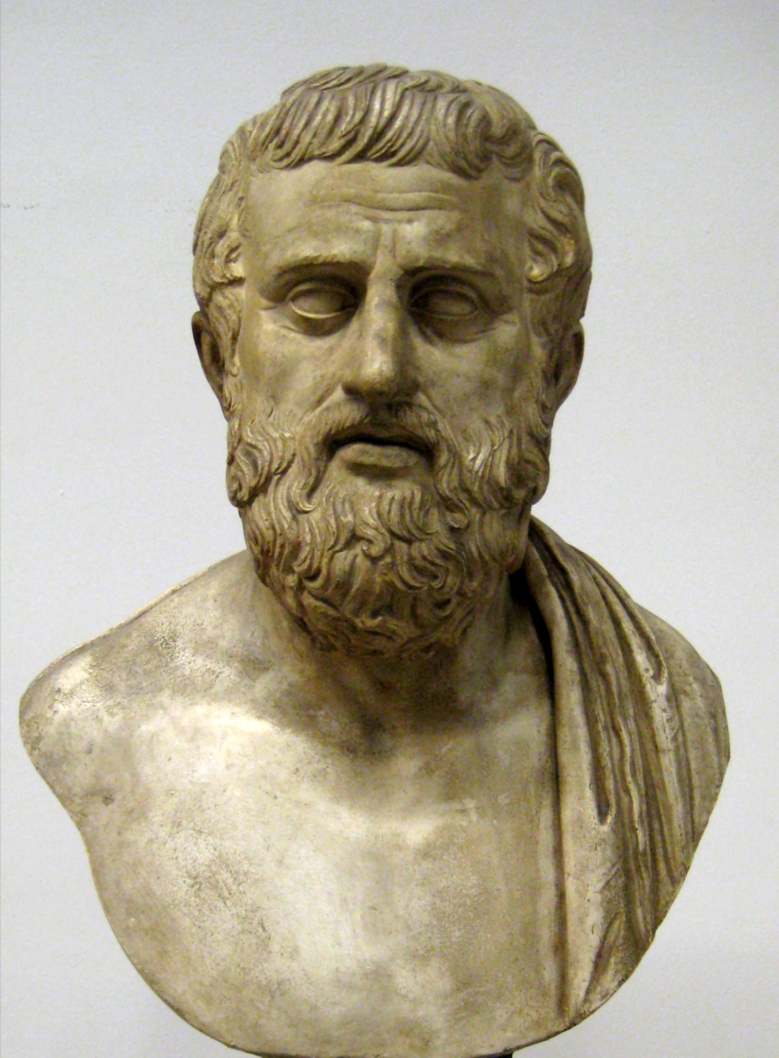Lavori
Filottete
SofocleEdipo a Colono
SofocleSofocle frasi celebri
Frasi sulla vita di Sofocle
Sofocle Frasi e Citazioni
“Tutto può accadere se un dio usa le sue arti.”
citato in Arturo Pérez-Reverte, Il giocatore occulto
Aiace
“La conseguenza dei guadagni ladri è perdizione, non felicità.”
2010; pos. 2477
Antigone
Edipo re
Origine: Citato in AA.VV., Il libro della letteratura, traduzione di Daniele Ballarini, Gribaudo, 2019, p. 39. ISBN 9788858024416
“ODYSSEUS I cannot recommend a rigid spirit.”
Sophocles II: Ajax, The Women of Trachis, Electra, Philoctetes, The Trackers
trad. di Franco Ferrari
Edipo re
Oedipus Rex
Edipo re, Citazioni sullEdipo re
Sofocle: Frasi in inglese
“Death is not the worst evil, but rather when we wish to die and cannot.”
Electra, 1007.
Bartlett's Familiar Quotations, 10th ed. (1919)
“Numberless are the world's wonders, but none
More wonderful than man.”
Variant translation: There are many wonderful things, and nothing is more wonderful than man.
Origine: Antigone, Line 333 (Ode I)
“One word
Frees us of all the weight and pain of life:
That word is love.”
Origine: Oedipus at Colonus, Line 1616–18
Scyrii, Frag. 510.
Bartlett's Familiar Quotations, 10th ed. (1919)
Origine: Antigone, Lines 295-303
“The greatest griefs are those we cause ourselves.”
Origine: Oedipus Rex, Line 1184, Second Messenger; one commonly quoted translation is, "The keenest sorrow is to recognize ourselves as the sole cause of all our adversities".
“Heaven ne'er helps the men who will not act.”
Fragment 288. (Plumptre's translation, as cited in Bartlett's Familiar Quotations, 1906)
Variante: Heaven never helps the man who will not act.
Variante: Look upon him, O my Thebans, on your king, the child of fame!
This mighty man, this Œdipus the lore far-famed could guess,
And envy from each Theban won, so great his lordliness—
Lo to what a surge of sorrow and confusion hath he come!
Let us call no mortal happy till our eyes have seen the doom
And the death-day come upon him—till, unharassed by mischance,
He pass the bound of mortal life, the goal of ordinance.
[ Tr. E. D. A. Morshead http://books.google.com/books?id=i7wXAAAAYAAJ (1885)]
Variante: People of Thebes, my countrymen, look on Oedipus.
He solved the famous riddle, with his brilliance,
he rose to power, a man beyond all power.
Who could behold his greatness without envy?
Now what a black sea of terror has overwhelmed him.
Now as we keep our watch and wait the final day,
count no man happy till he dies, free of pain at last.
[quoted by Thomas Cahill in Sailing the Wine-Dark Sea]
Origine: Oedipus Rex, Line 1529, Choragos.
“A wise player ought to accept his throws and score them, not bewail his luck.”
Fragment 947.
Phædra
Origine: Pearson, A.C. (1917). The Fragments of Sophocles (with additional notes from the papers of Sir R.C. Jebb and W.G. Headlam). Vol. 3. 3 vols. Cambridge: Cambridge University Press, 1917. Retrieved on 2017-01-06 from https://archive.org/details/fragmentseditedw03sophuoft.
Origine: Oedipus at Colonus, Line 1225; English translation by Sir Richard Jebb
Origine: Antigone, Line 781 (Ode III)
“Evil sometimes seems good
To a man whose mind
A god leads to destruction.”
Origine: Antigone, Lines 620-3
“Nobly to live, or else nobly to die,
Befits proud birth.”
ἀλλ᾽ ἢ καλῶς ζῆν ἢ καλῶς τεθνηκέναι
τὸν εὐγενῆ χρή
Origine: Ajax, Lines 479-480
τοῖς πᾶσι κοινόν ἐστι τοὐξαμαρτάνειν:
ἐπεὶ δ᾽ ἁμάρτῃ, κεῖνος οὐκέτ᾽ ἔστ᾽ ἀνὴρ
ἄβουλος οὐδ᾽ ἄνολβος, ὅστις ἐς κακὸν
πεσὼν ἀκῆται μηδ᾽ ἀκίνητος πέλῃ.
Origine: Antigone, Lines 1024-1027; cf. Book of Proverbs 28:13
χάρις χάριν γάρ ἐστιν ἡ τίκτουσ᾽ ἀεί
ὅτου δ᾽ ἀπορρεῖ μνῆστις εὖ πεπονθότος,
οὐκ ἂν γένοιτ᾽ ἔθ᾽ οὗτος εὐγενὴς ἀνήρ.
Origine: Ajax, Lines 522-524
“If I am Sophocles, I am not mad; and if I am mad, I am not Sophocles.”
Vit. Anon, page 64 (Plumptre's Trans.).
Bartlett's Familiar Quotations, 10th ed. (1919)
Oedipus (Line 1079?).
Oedipus Rex
Variante: I am Fortune's child,
Not man's; her mother face hath ever smiled
Above me, and my brethren of the sky,
The changing Moons, have changed me low and high.
There is my lineage true, which none shall wrest
From me; who then am I to fear this quest?
